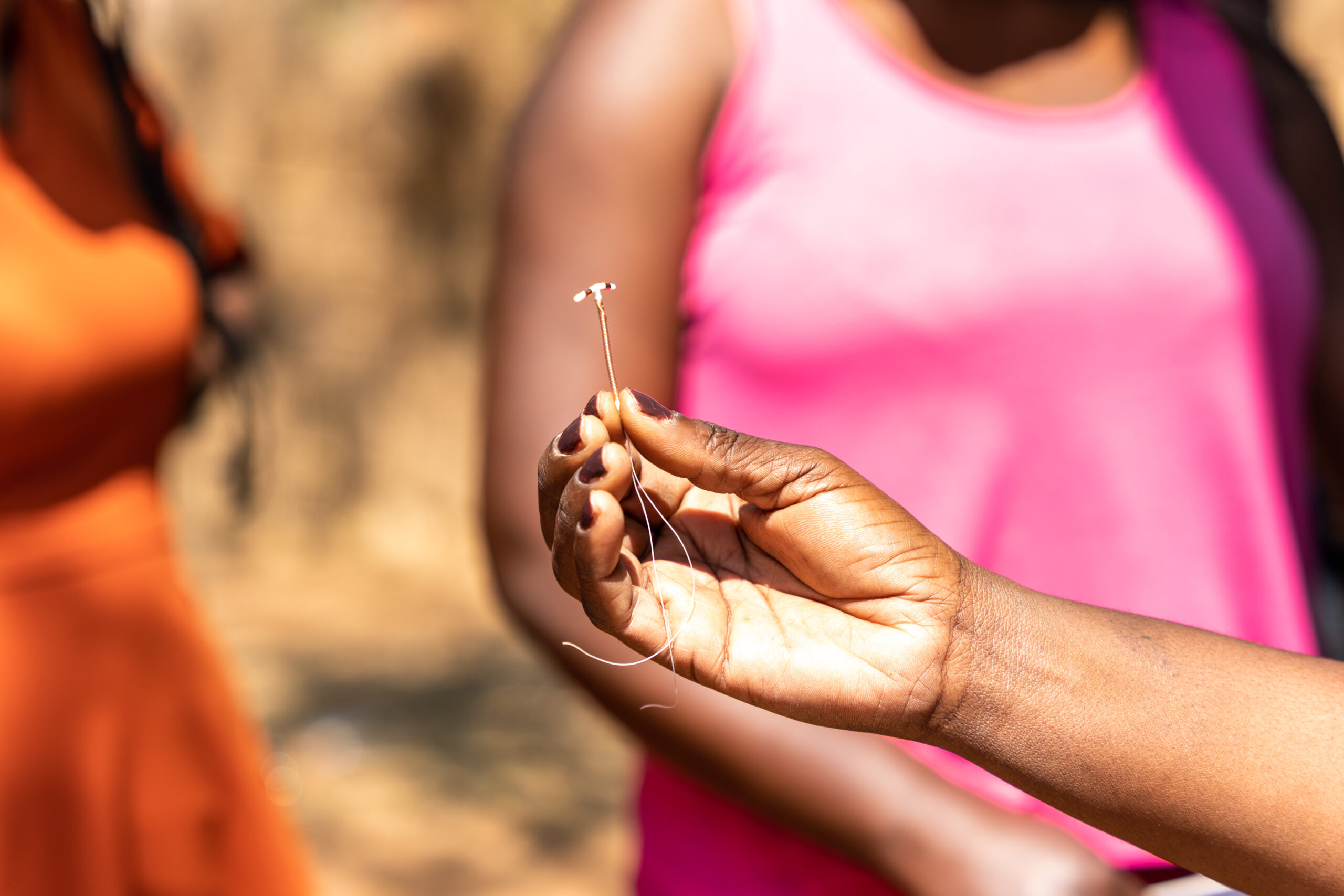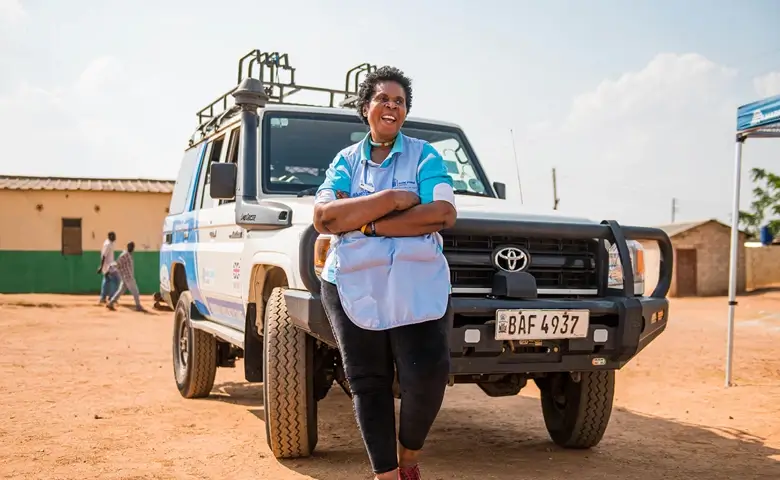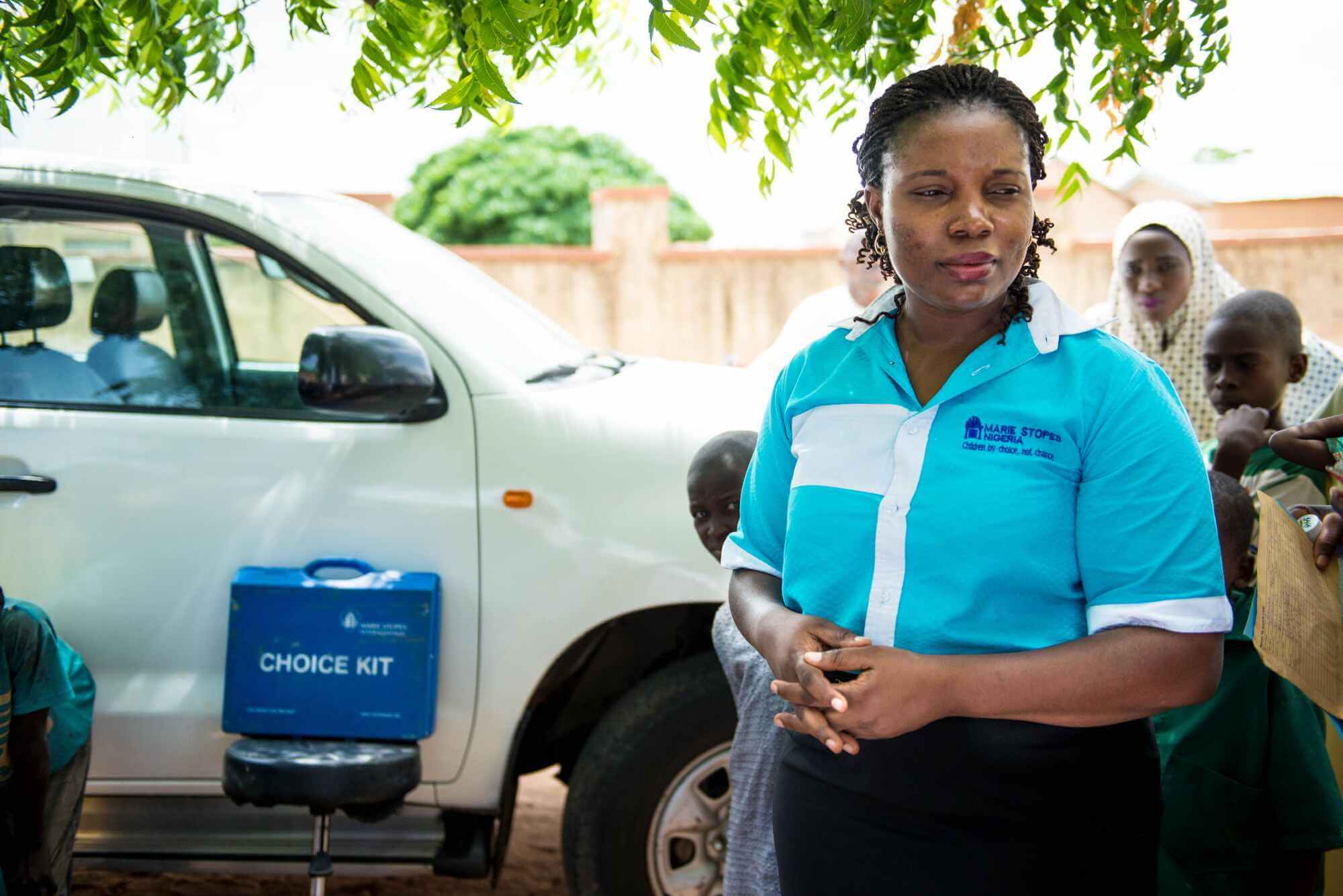
Contraception
Access to contraception is life-changing and can be life-saving.
When people have access to contraception, they can take control of their futures. They can choose to stay in school, pursue a career, and drive positive change in their communities.
With over 45 years’ experience delivering reproductive healthcare services, MSI has seen the transformational impact of contraception first-hand. Our contraceptive services have supported girls like Umah to complete their education, mothers like Margaret to pursue a career, and women in communities on the frontline of the climate crisis to make the reproductive choices that enable them to adapt in crisis situations.
Hingis is a 24-year-old student who accessed contraceptive services with MSI Ghana.
“My proudest achievement in my life so far is being able to go to university”
“I have a long way ahead of me with my studies, so it’s really important that I have access to contraception, so that I don’t get pregnant right now. I don’t want to be in a situation that I didn’t choose. A girl from my area got pregnant a few years ago and it meant she couldn’t further her education because she had to take care of her child.
“It’s important for young people to get access to contraception. If you’re sexually active, it really helps because you don’t have to deal with unwanted pregnancies. It even reduces your self-esteem if you’re not confident that you’re protected when having sex.”

Stories like Hingis’ are what motivates us to continue doing all we can to expand access to contraception, but we know we have our work cut out for us.
Globally, 257 million people currently want to be using contraception but have no access. That is 257 million people who are unable to make the reproductive choices that are right for their bodies, lives, and futures.
Some prefer the flexibility of using a short-term method of contraception. Barrier methods can also offer protection from Sexually Transmitted Infections (STIs).
Using a short-term method means you can stop using it whenever you like, for example, if you decide you’d like to become pregnant. MSI offers two types of contraception within this category – short-term barrier methods and short-term hormonal methods.
The short-term barrier contraceptives we offer are the female and male condom.
The short-term hormonal methods we offer are the combined oral contraceptive, the progestin-only pill, and depo medroxyprogesterone acetate injectables (often called “Depo Provera” or “Sayana Press”). We also offer emergency contraceptive pills, the hormonal patch in Vietnam and South Africa, and a range of emergency contraception options including IUDs.
Long-acting reversible methods of contraception are methods that offer protection against pregnancy for several years. These are far more effective than short term methods, and users do not need to remember to keep taking them.
Many prefer the convenience of these methods over needing to remember to take a pill every day or having an injection every 3 months. Most of MSI’s clients choose long-acting forms of contraception and in many of the countries where we work, MSI Reproductive Choices is the only provider of these methods.
We can offer clients three long-acting reversible methods including the copper IUD, the hormonal IUD, or the contraceptive implant.
Copper IUD
The copper intrauterine device (IUD) is a small copper-coated device that is inserted into the uterus through the vagina and cervix by a specially trained healthcare provider. Once in place, it can prevent pregnancy for 5 to 12 years depending on the model used.
If inserted within the first 5 days after unprotected sex, the copper IUD also acts as emergency contraception, and can continue to be used as regular contraception afterwards.
Hormonal IUD
The levonorgestrel intrauterine system (LNG-IUS) is a small plastic device that is inserted through the vagina and cervix by a specially trained healthcare provider. Once in place, it releases small amounts of the hormone levonorgestrel every day and prevents pregnancy for 3 to 5 years.
Contraceptive implant
The implant is a small plastic rod or rods, about the size of a matchstick, that releases a progestin hormone. A specially trained provider performs a minor surgical procedure to place the implant rod(s) under the skin on the inside of the arm. Once in place, it releases small amounts of progestins consistently, preventing pregnancy for three to five years.
We offer two permanent methods of contraception – tubal ligation for women and vasectomy for men.
Tubal ligation and vasectomy are both minor surgical procedures which are conducted by surgeons in an outpatient setting. They are quick, safe and protect you from unwanted pregnancies for life. Permanent methods are great for people who are certain they don’t want any more children or don’t want children at all, they are a highly effective method in which a person does not need to remind themselves of regularly.
If someone has had unprotected sex and wants to protect themselves against pregnancy, MSI can offer emergency contraception.
We offer two types of emergency contraception – the emergency contraceptive pill and the copper intrauterine device.
Emergency contraceptive pill
The emergency contraceptive pill – also known as the morning-after pill – can help to prevent pregnancy when taken up to 3-5 days after unprotected sex, depending on the pill used. It works by delaying the release of an egg from an ovary, therefore preventing pregnancy. The sooner you take the morning after pill, the more effective it will be at preventing pregnancy.
There are two types of emergency contraception medication:
1. The emergency contraceptive pill levonorgestrel (LNG), also called Levonelle, Revoke, or Back-Up, it can be taken up to 72 hours after unprotected sex.
2. The emergency contraceptive pill ulipristal acetate (UPA), also called Ellaone, it can be taken up to 120 hours after unprotected sex.
Because the emergency contraceptive pill delays the release of an egg, it is unlikely to be effective if taken after ovulation. The most effective form of emergency contraception is therefore intrauterine device (IUD), sometimes referred to as “the coil”.
Copper intrauterine device (IUD)
The copper IUD can be inserted up to five days after unprotected sex to prevent pregnancy. Once inserted, it will continue working for as long as the woman wishes to keep it in place, from a few weeks up to 12 years.
Looking for services?
If you are looking for services, you can find out where we work and how to get in touch via the link below.
More on MSI’s services
We’re working towards a world where everyone has reproductive choice. Find out more about our contraception and broader healthcare services, and how you can help.

Find our services
If you’re looking for services, we may be able to assist you depending on where you live and your situation. Find out where we work and how to get in touch.

Delivering contraception globally
Find out how we delivered access to over 80,000 people every day in 2022 in our annual review.

Donate to support contraceptive access
It only costs £6 per year to provide someone with life-changing reproductive healthcare. Help us protect reproductive choice, when needed most.





